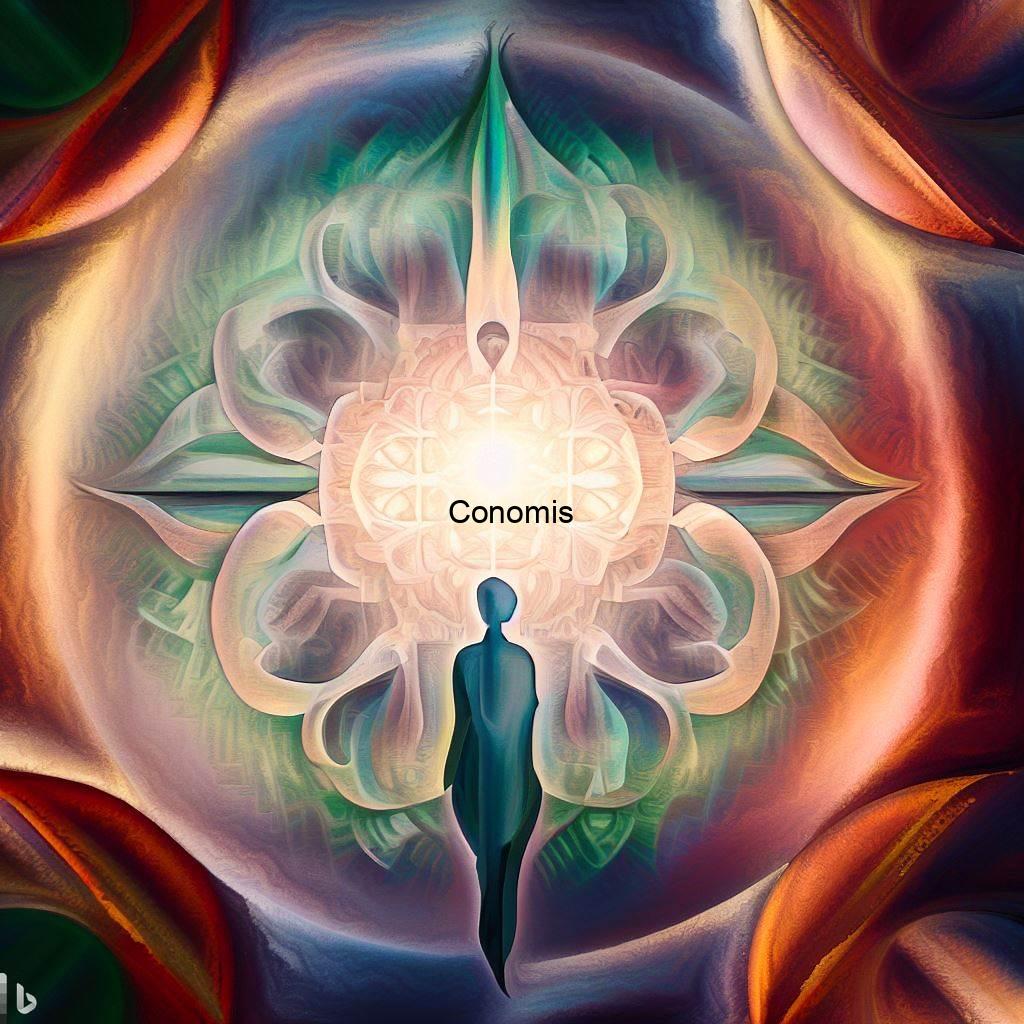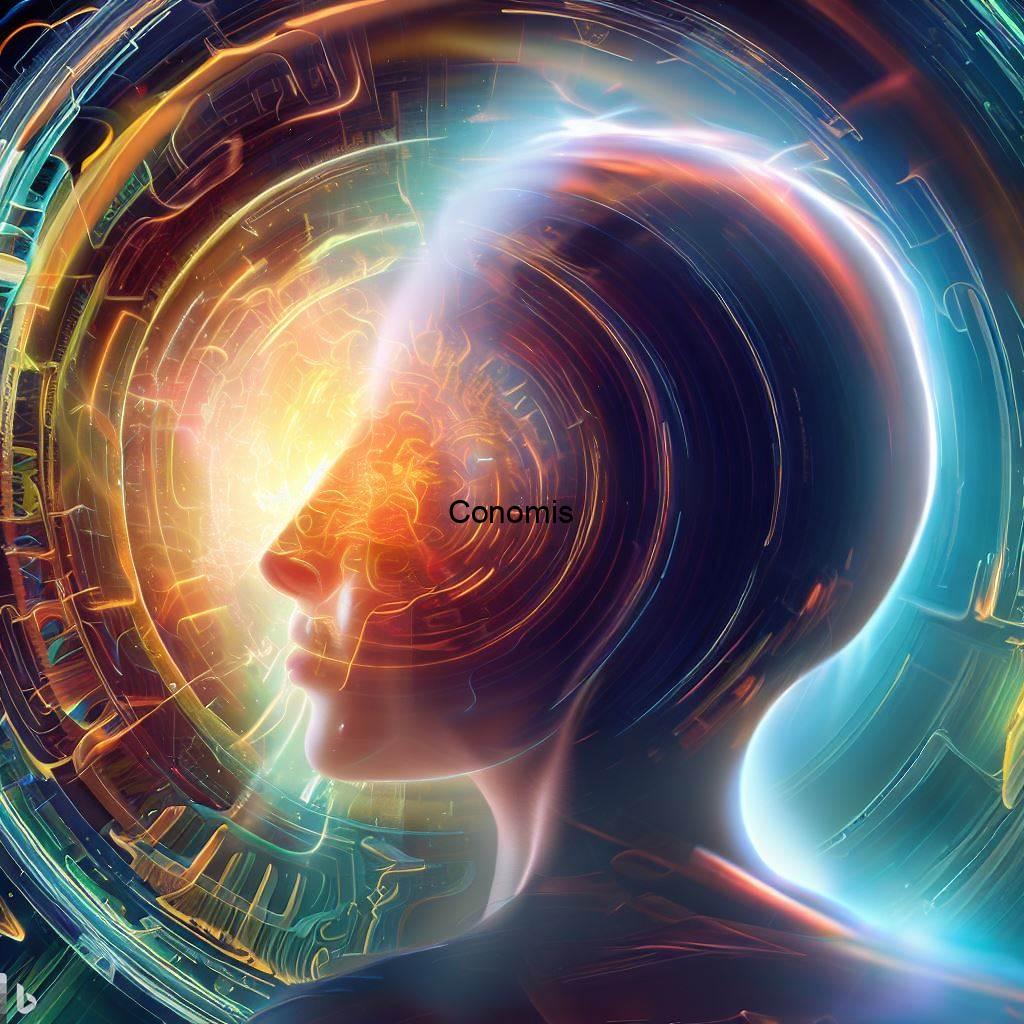Table of Contents
Introduction
In the journey of self-discovery, the concept of self-realization emerges as a powerful force, urging individuals to explore their inner depths and fully embrace their unique character and abilities. This transformative process, deeply ingrained in Western psychology, philosophy, and spirituality, finds echoes in the teachings of Eastern Indian religions, where it is referred to as “witness consciousness.”
Self-realization is not a fleeting moment of clarity but a lifelong quest that transcends the boundaries of religious beliefs and philosophical ideologies. It is an ever-evolving expedition into the essence of one’s being, where the center of psychological life shifts from the ego to the self. This profound understanding unlocks the true potential of thoughts, feelings, instincts, dreams, and unconscious wounds, liberating individuals from societal conditioning and external expectations.

The article explores the theory of psychosocial development, as proposed by Erik Erikson, which highlights self-realization as a significant milestone in later stages of life. It also traces the evolution of self-realization from ancient times to the present day, showing how the concept has evolved beyond religious confines and gained a more universal perspective.
From the Western world to the Eastern traditions, the pursuit of self-realization remains an essential aspect of human existence. It is a process that calls for mindfulness, reflection, and a willingness to embrace change and inner transformation. Ultimately, self-realization leads to a life of purpose, fulfillment, and a deeper connection with one’s true self—the soul.
The Essence of Self-Realization
Self-realization is a transformative and profound journey that transcends the surface level of our existence. At its core, this process involves a profound shift in the center of psychological life, moving away from the ego-dominated perspective to a deeper understanding of the self. It is an introspective voyage that goes beyond the influence of societal norms and materialistic desires, delving into the true essence of one’s being.
The path to self-realization is paved with self-awareness—a crucial aspect that allows individuals to explore the depths of their authentic self. This process of self-awareness is akin to embarking on an expedition into the uncharted territories of one’s psyche. By peeling away the layers of conditioning and uncovering the hidden facets of thoughts, feelings, instincts, dreams, and even the wounds buried in the unconscious, one gains access to the reservoir of untapped potential within.

Throughout this journey, individuals discover aspects of themselves they may have never known existed. They unearth strengths, talents, and passions that have been overshadowed or suppressed by societal expectations. This process empowers individuals to embrace their uniqueness fully and confidently.
Self-realization is not an instant revelation but a continuous process of growth and self-discovery. It requires dedication, patience, and a willingness to confront the discomfort that comes with confronting one’s own vulnerabilities and limitations.
In conclusion, self-realization is a powerful odyssey of understanding, acceptance, and embracing the true essence of oneself. It liberates individuals from the confines of external influences and empowers them to unleash the full spectrum of their potential, ultimately leading to a more authentic and fulfilling life.
The Path to Self-Realization
The path to self-realization is a transformative and continuous process that unfolds gradually, like the unfolding of a delicate flower. It is not a sudden flash of insight but rather a patient and purposeful journey of self-discovery. This profound expedition involves the gradual crystallization of one’s characteristics and personality, as if forming a beautiful masterpiece over time.
Self-realization demands an active and conscious effort from the individual. It requires a willingness to embrace change and growth, acknowledging that the true self is not fixed but ever-evolving. This process involves peeling away the layers of conditioning and societal expectations to uncover the authentic self buried within.
As individuals embark on this journey, they encounter an inner force, a driving motivation that seeks expression in the external world. This force is the very essence of their being, pushing them towards fulfillment and authenticity.

Mindfulness plays a vital role in self-realization. By cultivating present-moment awareness, individuals become attuned to their thoughts, emotions, and behaviors. Reflection becomes a powerful tool for gaining insights into one’s motivations and fears, allowing for deeper self-understanding.
Challenges are inevitable along the path of self-realization. Confronting inner conflicts and insecurities can be daunting, but facing them head-on is essential for growth and transformation.
In conclusion, the path to self-realization is a profound and rewarding journey of self-discovery. By embracing change, practicing mindfulness, and courageously confronting challenges, individuals can embark on a transformative odyssey that leads to a more authentic and fulfilling existence.
From Religious to Philosophical Transcendence
Throughout the annals of history, self-realization has been a recurring theme in diverse spiritual and religious traditions. Across cultures and belief systems, individuals have sought to unravel the mysteries of their true selves, guided by the tenets of their respective faiths. However, as the world has evolved, so too has the perception of self-realization.
In the modern era, the concept has transcended the confines of religious boundaries and has taken on a more philosophical and universal meaning. It has grown to encompass a broader understanding that resonates with people from various backgrounds and beliefs. Beyond the rituals and dogmas of specific faiths, self-realization has become a quest for self-awareness and personal growth—a shared human endeavor.
The pursuit of self-realization is no longer exclusive to those following a particular religious path; it is a universal journey that invites people of all backgrounds to embark on an inward exploration. It is a search for meaning, purpose, and authenticity that transcends cultural and ideological differences.

In the melting pot of diverse worldviews, individuals find common ground in the quest for understanding their innermost selves. This inclusivity fosters a sense of unity and empathy, as people recognize their shared human experiences and aspirations.
In conclusion, self-realization, once primarily rooted in religious traditions, has evolved into a broader and more universal concept. It now embraces philosophical ideas and invites individuals from all walks of life to embark on a journey of self-discovery. This transformation expands the horizons of self-awareness and personal growth, fostering a greater understanding and interconnectedness among humanity.
The Rabbit Hole of Spirituality: Like Alice in Wonderland
In the vast landscape of spirituality, the concept of self-realization can be likened to Alice’s journey down the rabbit hole in Wonderland. Like Alice, individuals embarking on the path of self-realization venture into the depths of introspection and self-exploration, traversing uncharted territories of their consciousness.
As we delve deeper into the realms of our inner world, we may uncover unexpected and transformative insights. The journey is a revelation of the hidden aspects of ourselves, beyond the facade of our everyday personas. It challenges preconceived notions, dismantles limiting beliefs, and opens doors to new perspectives.
Much like Alice encountered bizarre and enchanting characters in her Wonderland adventure, the journey of self-realization introduces us to facets of ourselves we might have never acknowledged before. This inner exploration brings to light suppressed emotions, forgotten dreams, and untapped potential.
The rabbit hole of spirituality beckons us to question the very fabric of reality and our place within it. It leads to a profound understanding of the interplay between our thoughts, emotions, and actions. In this journey, we realize that our consciousness is a vast and intricate tapestry, woven by our experiences, beliefs, and perceptions.

Self-realization, like Alice’s exploration, is not without its challenges. It requires courage to confront our fears and vulnerabilities, to accept the aspects of ourselves we might have deemed undesirable. But in doing so, we can shed the layers of societal conditioning and embrace our authentic selves.
In conclusion, the rabbit hole of self-realization is a transformative and awe-inspiring journey of introspection and self-discovery. It propels us to challenge our assumptions, embrace the enigmatic depths of our consciousness, and emerge wiser and more self-aware. As we navigate this mystical journey, we unfold the myriad layers of our being, ultimately embracing the essence of who we truly are.
Self-Realization and the Soul
Self-realization is a sacred voyage that leads us to the very core of our existence—the soul. At its essence, this transformative journey involves shedding the layers of societal conditioning and external expectations that have accumulated over time. Through this process, we unearth our authentic self, which is often buried beneath the masks we wear to conform to societal norms.
The quest for self-realization is not solely about achieving external success or material goals. It transcends the realm of worldly achievements and delves into the depths of our consciousness. It is a pilgrimage towards inner peace and fulfillment, a connection with the profound source of wisdom and tranquility within us—the soul.
This inner exploration invites us to reflect upon our deepest desires, fears, and aspirations, unearthing our true passions and talents. As we peel back the layers that hide our true essence, we gain clarity and insight into our authentic nature. We discover the unique tapestry of our thoughts, emotions, and experiences that weave together to form the intricate fabric of our being.

The journey of self-realization demands courage and vulnerability as we confront our shadows and limitations. However, through this process, we liberate ourselves from the shackles of societal expectations and external validation, freeing our soul to shine brightly in its true radiance.
In conclusion, self-realization is a sacred pilgrimage that leads us back to the soul—the eternal essence within. It transcends worldly ambitions, offering a profound sense of inner peace and fulfillment. As we embrace our true selves, we find the key to unlocking the boundless potential within us, ultimately leading to a life of purpose, joy, and authenticity.
A Western Perspective: The Theory of Psychosocial Development
The theory of psychosocial development, pioneered by renowned psychologist Erik Erikson, provides a profound Western perspective on the concept of self-realization. Erikson proposed that individuals progress through a series of psychosocial stages throughout their lives, each stage presenting unique challenges and opportunities for growth.
At the heart of Erikson’s theory is the idea that self-realization plays a pivotal role in the later stages of development. As individuals move through these stages, they face critical psychosocial crises that demand resolution for healthy psychological growth.
Self-realization, within Erikson’s framework, becomes a fundamental milestone in achieving a sense of fulfillment and authenticity. It emerges as a natural consequence of successfully navigating the psychosocial challenges and establishing a coherent identity.

In the earlier stages of Erikson’s theory, individuals wrestle with issues such as trust versus mistrust, autonomy versus shame and doubt, and identity versus role confusion. These stages lay the groundwork for self-awareness and a solid sense of self, setting the stage for the eventual pursuit of self-realization in the later stages.
As individuals progress into adulthood and beyond, they confront the stages of intimacy versus isolation, generativity versus stagnation, and ego integrity versus despair. Achieving self-realization becomes a culmination of these experiences, encompassing a deep understanding of one’s strengths, weaknesses, and personal values.
In summary, the theory of psychosocial development by Erik Erikson offers a compelling Western perspective on self-realization. It highlights the crucial role of achieving self-awareness and personal growth in the later stages of life. By navigating the psychosocial challenges presented in each stage, individuals pave the way for a transformative journey of self-discovery and, ultimately, self-realization.
From the West to the East: The Evolution of Self-Realization
The concept of self-realization is a universal phenomenon that transcends cultural and geographical boundaries. It has evolved through the annals of time and found diverse expressions in various traditions and belief systems across the globe. From the West to the East, self-realization has manifested in distinctive ways, yet its essence remains consistent—a profound quest for self-awareness and inner growth.
In the Western world, self-realization has been explored through the lens of psychology. Renowned psychologists and thinkers have delved into the complexities of the human mind, emphasizing the importance of understanding oneself and unlocking the hidden potential within. The emphasis on individuality and personal growth has been a hallmark of Western perspectives on self-realization.
On the other side of the world, the East has long delved into the realms of spirituality and ancient wisdom. Eastern traditions, such as Buddhism, Hinduism, and Taoism, have emphasized the significance of self-realization as a means to transcend suffering and achieve inner harmony. Through meditation, mindfulness, and self-reflection, practitioners seek to connect with their true nature and attain spiritual enlightenment.

Despite the differences in approach, the essence of self-realization remains universal—the journey towards uncovering the authentic self and embracing one’s true nature. It is a profound pilgrimage that requires introspection, courage, and a willingness to challenge preconceived notions.
The beauty of self-realization lies in its adaptability and inclusivity. It speaks to the human yearning for meaning and purpose, regardless of cultural or religious background. As individuals explore their inner landscapes and forge connections with their deepest selves, they embark on a transformative odyssey that unites humanity in a shared pursuit of growth and self-discovery.
In conclusion, self-realization is an ageless and borderless journey of self-discovery. From the West’s emphasis on psychology to the East’s focus on spirituality, the pursuit of self-awareness remains a fundamental aspect of the human experience. As we traverse the diverse paths to self-realization, we recognize our interconnectedness and the universal longing for inner growth and fulfillment.
Self-Realization in the Modern World
In the bustling and digitally connected modern world, the pursuit of self-realization encounters novel obstacles. The relentless pace of life, coupled with the incessant distractions brought on by technology, can create barriers to the introspective journey. The demands of daily responsibilities and the constant influx of information often divert our attention away from the path of self-discovery. Despite these challenges, the significance of self-awareness and personal growth has never been more vital.
In a world driven by external achievements and materialistic pursuits, the quest for self-realization can easily take a backseat. The pressure to conform to societal norms and the need to meet endless expectations may overshadow the call for inner exploration. As a result, many individuals find themselves disconnected from their true selves, grappling with feelings of emptiness and a lack of purpose.
However, the yearning for self-realization persists even in the face of modern distractions. The innate desire to understand our true essence and fulfill our potential remains a fundamental aspect of human nature. Amidst the noise of the world, the need for introspection, self-reflection, and mindfulness becomes all the more crucial.

The modern world, with its myriad challenges, also offers unique opportunities for self-realization. Advancements in technology provide access to vast knowledge and resources that can aid in the journey of self-discovery. Online platforms and communities foster connections with like-minded individuals, creating spaces for shared growth and support.
In conclusion, while the fast-paced and technology-driven modern world presents its share of challenges to self-realization, the call for inner exploration and personal growth remains ever-present. Embracing the journey of self-awareness amidst the chaos of daily life is essential to finding fulfillment and purpose. By prioritizing moments of introspection and mindful presence, individuals can embark on a transformative odyssey of self-discovery, nurturing a deeper connection with their true selves and the world around them.
Embracing Change and Inner Transformation
Embracing change and inner transformation is a fundamental aspect of the path to self-realization. The journey of self-discovery demands a willingness to confront our fears and limitations, embarking on a process of growth and evolution towards becoming the best versions of ourselves.
Change can be daunting, as it requires stepping out of our comfort zones and venturing into the unknown. It calls for letting go of familiar patterns and beliefs that may no longer serve us. However, it is in these moments of vulnerability that we find the potential for profound growth and self-discovery.
Self-realization is not a destination but a continuous journey of inner exploration and growth. As we navigate this transformative path, we encounter aspects of ourselves that we might have suppressed or ignored. Confronting these vulnerabilities and shadows is an integral part of the process, as it paves the way for healing and personal evolution.

Courage plays a crucial role in self-realization. It is the strength to face our fears, challenge self-imposed limitations, and take bold steps towards self-awareness. By embracing change and being open to new experiences, we unlock the doors to endless possibilities and growth.
The journey of self-realization is unique to each individual, as we all carry our own experiences, wounds, and aspirations. It is a personal odyssey that requires honesty, self-compassion, and an open heart.
In conclusion, embracing change and inner transformation is the heart of the path to self-realization. It is a courageous and vulnerable journey that leads to profound growth and a deeper understanding of ourselves. By confronting our fears and limitations, we create space for personal evolution, allowing us to blossom into the best versions of ourselves on the journey towards self-discovery.
The Role of Mindfulness and Meditation
Mindfulness and meditation are essential pillars in the pursuit of self-realization. Through these practices, individuals nurture a profound connection with their inner selves, unlocking the door to self-awareness and heightened presence. Mindfulness involves being fully present and attentive to the present moment, allowing individuals to observe their thoughts and emotions without judgment. Meditation, on the other hand, offers a dedicated space for inner reflection and self-exploration.

By integrating mindfulness and meditation into their lives, individuals cultivate a deeper understanding of their thoughts, feelings, and reactions. This heightened self-awareness enables them to break free from automatic patterns and reactions, gaining the freedom to respond to life’s challenges with clarity and compassion. As a result, they become more attuned to their true selves and embark on a transformative journey of self-realization, uncovering the depths of their authentic being.
Overcoming Obstacles on the Path
The journey of self-realization is not immune to obstacles that may arise along the way. Inner conflicts, self-doubt, and the weight of societal pressures can act as roadblocks on this transformative path. However, by acknowledging and embracing these challenges, individuals can move forward and inch closer to their true selves.
Inner conflicts may stem from past experiences or unresolved emotions, creating turbulence within the mind and heart. Self-doubt can cast shadows of uncertainty, making it difficult to trust one’s instincts and inner guidance. Additionally, societal expectations and norms may impose limitations on the pursuit of self-realization.

To overcome these obstacles, individuals must cultivate self-compassion and develop a non-judgmental attitude towards themselves. Acknowledging and accepting their vulnerabilities and fears is a crucial step towards growth. Seeking support from like-minded individuals or a supportive community can provide encouragement and a sense of belonging on this transformative journey.
With determination and resilience, individuals can navigate through these challenges, making progress on the path of self-realization. By confronting and working through the obstacles that arise, they gain a deeper understanding of themselves and unlock the potential for inner growth and self-discovery. In this way, each obstacle becomes an opportunity for personal evolution and moving closer to a more authentic and fulfilled existence.
A Fulfilling Life through Self-Realization
Self-realization is not merely a distant spiritual ideal; it holds tangible and practical significance for living a fulfilling life. When individuals connect with their authentic selves, a profound transformation occurs, paving the way for a sense of purpose, happiness, and contentment.
Living in alignment with one’s true self allows individuals to make choices and pursue paths that resonate with their deepest values and passions. This authenticity brings a sense of fulfillment and meaning to their actions and decisions. As they shed the layers of societal expectations and embrace their genuine desires, they experience a newfound freedom and empowerment.
Self-realization fosters a deeper understanding of one’s strengths and weaknesses, enabling individuals to make choices that align with their natural talents and inclinations. This alignment creates a sense of harmony within, resulting in reduced inner conflict and a greater sense of peace and contentment.

When individuals lead lives in tune with their authentic selves, they naturally attract experiences and relationships that nourish their growth and well-being. This alignment brings a sense of flow and ease to their lives, leading to a more joyful and fulfilling existence.
In conclusion, self-realization is not a distant and unattainable concept; it has a tangible impact on leading a fulfilling life. Embracing one’s authentic self brings a profound sense of purpose, happiness, and contentment. As individuals align with their true nature, they experience a richer and more meaningful existence, fostering a deep sense of fulfillment and well-being.
Unlocking Human Potential
The potential of human beings is boundless and frequently remains untapped. Self-realization serves as the key to unlock this vast reservoir of possibilities, enabling individuals to harness their distinct talents and abilities to create a positive impact on their lives and the world.
As individuals embark on the journey of self-realization, they gain a profound understanding of their true selves. This self-awareness allows them to identify their innate strengths, passions, and aspirations. By aligning with their authentic selves, they gain the confidence and clarity to pursue their goals and dreams with unwavering determination.
Self-realization is a transformative process that empowers individuals to transcend perceived limitations. It liberates them from societal norms and external expectations, giving them the freedom to explore their unique potential and contribute their gifts to the greater good.

When individuals tap into their true potential, they discover new dimensions of creativity, resilience, and empathy. They become catalysts for positive change, influencing not only their own lives but also inspiring others to unlock their latent potential.
In conclusion, self-realization is the key to unlocking the vast human potential that lies within each individual. By embracing their authentic selves, people gain the power to harness their unique talents and abilities, igniting a ripple effect of positive transformation in their lives and the world.
The Global Impact of Self-Realization
The impact of self-realization extends far beyond individual lives; it reverberates across the globe, influencing and inspiring others to embark on their own paths of self-discovery. When individuals attain self-realization, they exude a sense of positivity, authenticity, and inner peace that can be felt by those around them. This radiance serves as a beacon, encouraging others to explore their own inner landscapes and uncover their true selves.
The ripple effect of self-realization is powerful, as it fosters a more compassionate and interconnected world. As more individuals embrace their authentic selves, they cultivate empathy and understanding towards others. This heightened sense of compassion transcends borders, bridging gaps and promoting harmony among diverse cultures and societies.

In this interconnected global landscape, the collective pursuit of self-realization can lead to a profound shift in consciousness, ushering in a world where individuals value inner growth and authenticity. This ripple effect creates a positive feedback loop, where the journey of self-discovery in one individual inspires and catalyzes the journeys of countless others, creating a transformative force for positive change on a global scale.
Conclusion
In conclusion, self-realization is a profound and transformative journey that guides individuals from the ego-centered realm to the realm of the soul. This quest, with its roots in both Western psychology and Eastern spirituality, surpasses cultural and religious boundaries, becoming a universal pursuit for self-awareness and personal growth. By embracing change, practicing mindfulness, and unlocking their true potential, individuals embark on a path of inner growth and fulfillment.

The journey is one of self discovery, peeling away layers of conditioning to reveal the authentic self beneath. As individuals cultivate self-awareness and align with their true nature, they find a sense of purpose and contentment that transcends external achievements. Self-realization opens doors to a life of authenticity, compassion, and interconnections, fostering a profound shift in consciousness that ripples outward, inspiring others to embark on their own transformative journeys.
FAQs
What is self-realization?
Self-realization is the lifelong process of shifting from ego-centered existence to a deeper understanding and connection with one’s true self—the soul.
How does self-realization impact our lives?
Self-realization brings a profound sense of purpose, fulfillment, and happiness, leading to a more fulfilling life.
Can self-realization be achieved in a fast-paced world?
Yes, by incorporating mindfulness and meditation, individuals can navigate the challenges of modern life while pursuing self-realization.
Does self-realization have a global impact?
Yes, as self-realized individuals radiate positivity, they inspire others to embark on their own journeys of self-discovery, fostering a more compassionate world.
You Can Also Read
Conomis Thoughts
![]() Copyright 2023 CONOMIS
Copyright 2023 CONOMIS

